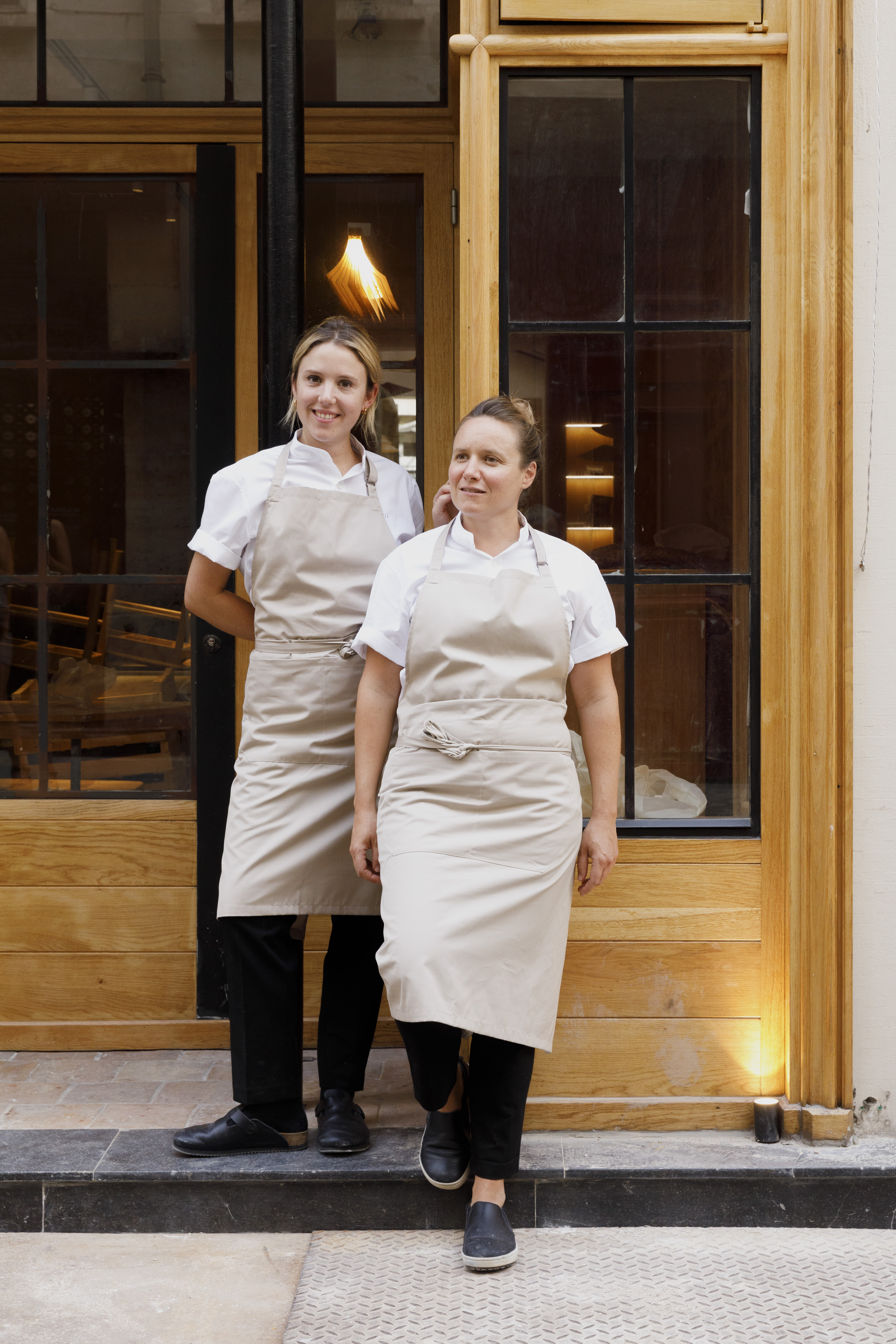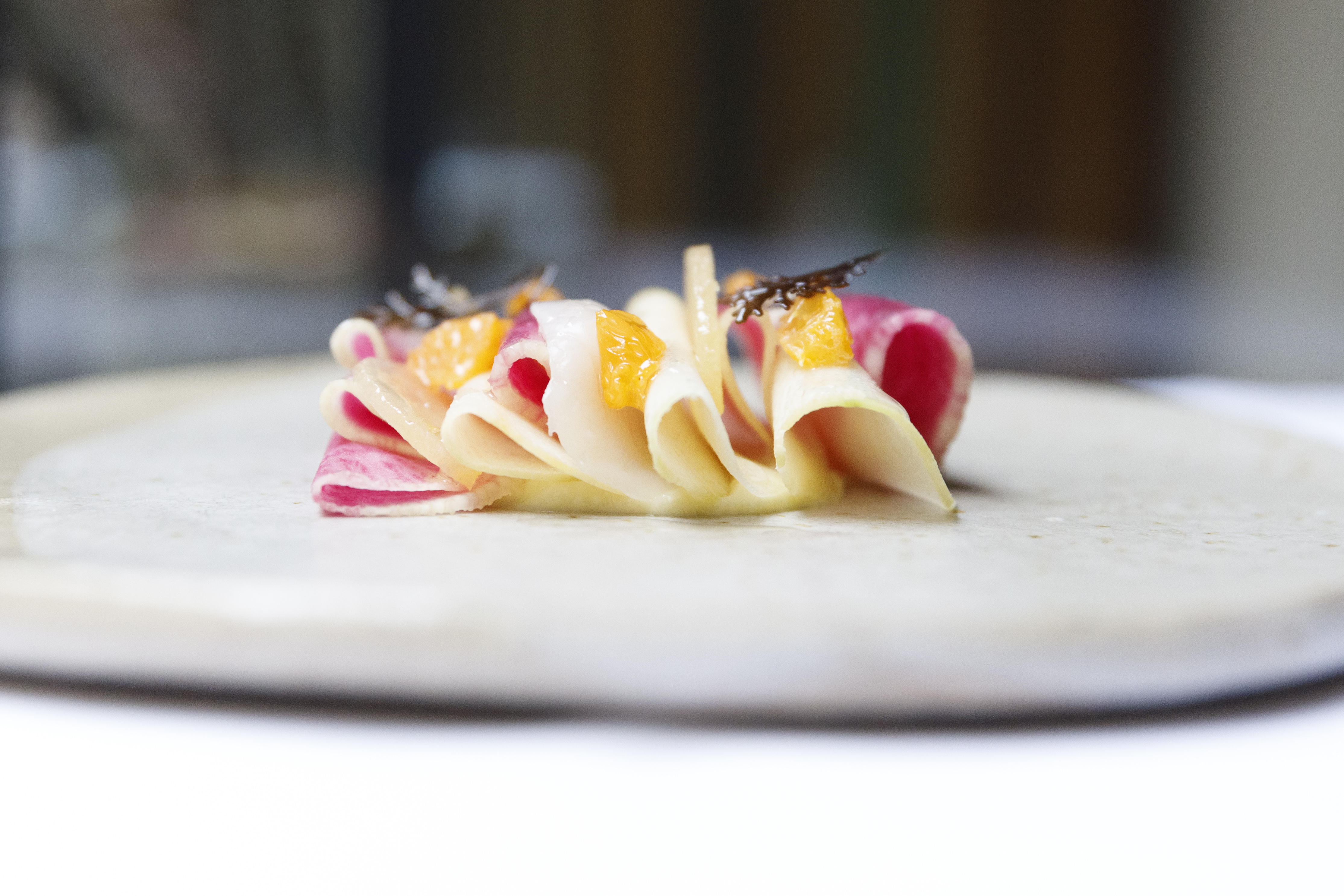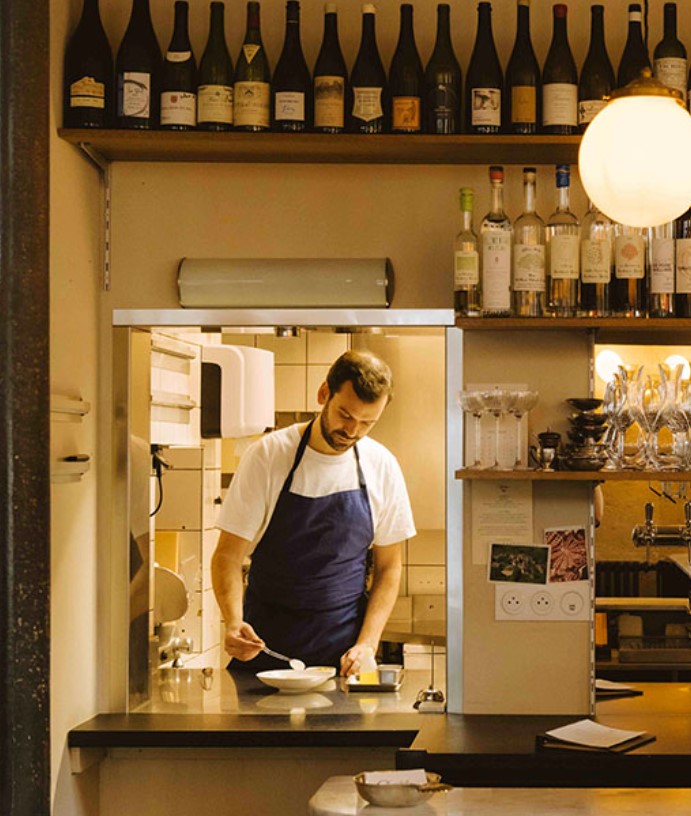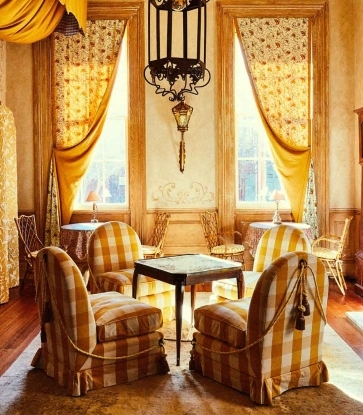Manon Fleury’s journey from junior National Fencing Champion to one of Paris’s most exciting culinary voices is nothing short of extraordinary. After studying classical cooking at Ferrandi, she refined her skills under culinary legends like Alexandre Couillon (La Marine), Pascal Barbot (Astrance), and Dan Barber (Blue Hill at Stone Barns). By 2018, at just 27, she had already ascended to the role of Chef at Mermoz, inspired by a deep commitment to social responsibility and the future of plant-based cuisine.
Datil, named after a rare heritage plum saved from extinction and a South American pepper, is not just a restaurant—it’s Manon’s radical vision in action. Since its opening in September 2023, Datil has been swiftly recognized by MICHELIN Guide Inspectors, becoming a standout in Paris’s culinary landscape. We sat down with Manon and her co-chefs to discuss feminism, wellbeing in the kitchen, creating an inclusive workspace, and the future of sustainable gastronomy. In short, the future of restaurants.

All for five and five for all
In terms of management, Datil is revolutionary. There are no chefs or sous chefs, but a high-flying quintet of cooks who contribute equally. Manon joined forces with Laurène Barjhoux, whose CV boasts stints at Mandarin Oriental with Thierry Marx and Three MICHELIN Star and Green Star Arpège with Alain Passard. “We met when Manon was at Mermoz in Paris, and then worked together at Elsa in Monaco, which strengthened our ties and taught us how to work as a team,” recalls Laurène.The Datil team also includes: Juliette Barry, a former member of the teams of Guy Martin (Cristal Room Baccarat), Michel Guérard (Three MICHELIN Star Les Prés d’Eugénie) and Adeline Grattard (One MICHELIN Star Yam’tcha and Bib Gourmand Lai’Tcha); Céline Canivez, the daughter of farmers who spent over two years at Two MICHELIN Star and Green Star L’Air du Temps in Belgium; and finally Manon Grados, former Sous Chef at One MICHELIN Star Violon d’Ingres with Christian Constant, who also spent periods at the One MICHELIN Star restaurants Tour d’Argent and Neige d’Eté.
“We ended up with a shortlist of three chefs, all with excellent profiles, and finally decided to hire them all— offering them the same salary,” Manon explains. The thinking behind this decision was that they would be interchangeable. “We’ve only been open for four months, but every chef has changed position at least once. We try to ensure that everyone is highly versatile and as at home with desserts as with fish.”


'Faiminisme' and sisterhood
A head sommelier (Valentine Roustit), a head waitress (Frederikke Lau) and a front-of-house manager (Adèle Nogues) complete Datil's impressive ensemble. Asked whether Datil deliberately skews female, Manon replies, "We didn’t set out to hire only women chefs. It just turned out that the best resumés were those from women.” She notes that the restaurant employs a male kitchen porter and a male head waiter.Naturally enough, this matriarchy champions a 'faiministe' outlook, echoing the neologism playing on 'feminist' and 'faim' (the French word for hunger) coined by Nora Bouazzouni, whose brilliant essay, subtitled 'When sexism sits down to eat,' was published by Nouriturfu in 2017. “We wanted to implement a horizontal structure with more room for dialogue,” says Laurène. “Manon is the majority shareholder and she’s the one with the bank loan. We’re otherwise pretty free, because we don’t have investors breathing down our necks.”

Fostering respect in the kitchen
“At a time when so few people are drawn to restaurant work, perhaps we should ask ourselves why,” says Manon. “Since reducing working hours isn’t always feasible, we’ve implemented a rotating shift system and remain closed on weekends. Our goal is to ensure each chef has several dedicated days or evenings off each week.”
In May 2021, Manon and 20 fellow chefs, including Laurène, co-founded the Bondir.e association, dedicated to preventing violence in kitchens, especially targeting issues faced by catering school students.
“The association was invaluable in shaping Datil,” Laurène adds. “We established a charter of respectful behavior: no racism, no disrespect, no homophobia. Of course, everyone makes mistakes, but what matters is how we handle them and address sensitive situations when they arise.”

Where vegetables steal the limelight
At Datil, the focus is on celebrating local, seasonal plants—though that doesn’t mean eliminating all animal ingredients. "This doesn’t necessarily mean vegetarian," Manon points out. "We didn’t want to restrict ourselves and wanted to ensure that we could still cook the ingredients we loved. Even if plants remain central to our culinary DNA, at the moment, for example, we work with sea urchin, monkfish and scallops as well."Before Datil opened, the entire team went round and each visited one of our artisan suppliers. This raised our awareness about the issue of respect for animal welfare – in relation to how the animal is raised and slaughtered – and it felt as if it was our duty to support these producers. Because, at the end of the day, if we don’t support the work of small fishing boats who fish respectfully and carefully, who will?"

Food is always political
“Datil is firmly anchored in the zeitgeist and today’s world, and we endeavour to remain in touch with reality," says Manon. "We are acutely aware of the issue of climate change and are determined to feed people while ensuring that we protect the living world and nature in all its diversity.”Most of the restaurant’s produce comes from two market gardeners who are located less than 100km from the restaurant: Erwan Humbert of Ferme des Prés Neufs (Longpont-sur-Orge) and Xavier Fender of Ferme des Limons de Toulotte (Sancy-lès-Provins). The latter has managed to become self-sufficient in his water usage by collecting rainwater in a nearby pond dug specifically for the purpose.
"When we get out and meet them, we gain a better understanding of the issues facing our fishermen, market gardeners and breeders," notes Manon. "We get a better grasp of how they operate and work. As a result, we adapt to them rather than vice versa."

Objective: Zero waste
"We have been given this label because of our committed approach and because we work with short supply chains. But for us this ethos is genuine and deep-rooted—it is the antithesis of greenwashing," Manon says.This entails countless tiny eco-responsible gestures, day in, day out. "The first thing we serve is a stock made from vegetable peelings—at the moment, potato peelings. The meal ends with a herbal tea made from plum stones, in tribute to our name. With dishes like this, we are trying to use every part of each ingredient: cream of vanilla pods, cakes made out of carrot tops, oil from whole carcasses.” she says.

Related articles:
Hero Image: Datil’s Chefs (©Pauline Gouablin)




















